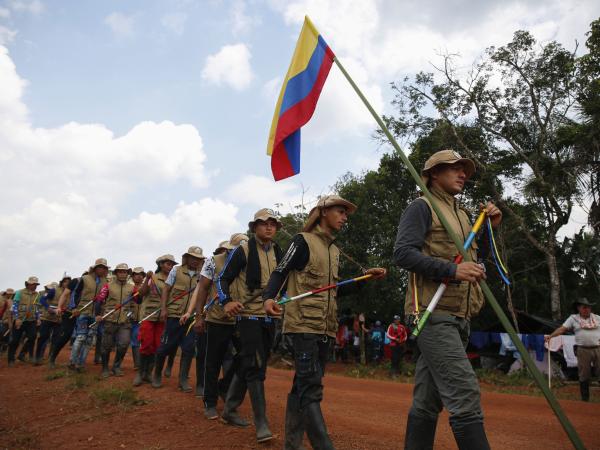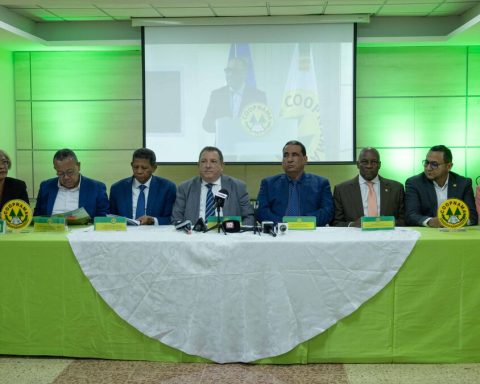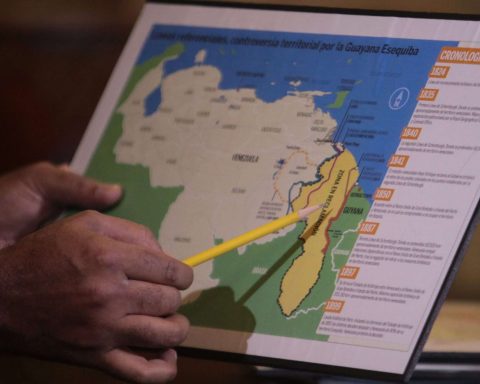Agri-food systems are experiencing an unprecedented crisis that affects the food security of the population and the livelihoods of thousands of farmers around the world.
Agreeing on a common commitment to reduce, in less than a decade, greenhouse gases that come from methane, was the meeting point of the “First Ministerial Conference on Low Emission Food Systems”organized by Chile and Spain with the support of the Global Methane Hub in Santiago, reported this Saturday the Ministry of Agriculture.
“We have to move history and act in the face of the climate crisis without losing our fundamental mission, which is to feed healthy and sustainably,” said the Minister of Agriculture, Esteban Valenzuelaat the close of the closing plenary session of the Conference that brought together international organizations such as the FAO, IICA and representatives of 24 countries from the five continents.

During the two days that this conference lasted, the different experiences and approaches of local policies regarding the reduction of methane for agriculture were addressed. In this sense, Minister Valenzuela made a call to work on responsible production, for fair trade and valued public-private relations to move towards reducing emissions from the agricultural sector.
“This historic event of a meeting of ministries of agriculture from the five continents to commit ourselves to a faster and more pragmatic path of public-private relationship in the fundamental task of reducing greenhouse gases and having a greener and more sustainable agriculture is extraordinary,” he claimed Valenzuela.
second conference
For his part, he Minister of Agriculture, Fisheries and Food of Spain, Luis Plana He pointed out that the agricultural sector must adapt to a new context resulting from climate change. In addition, Plana maintained that “with this conference we have promoted a process in which a good number of countries have joined, so it is a very positive balance. Sharing experiences, knowing that we have to adopt measures that may be applied differently in each of the countries, but must have a common pattern, seems absolutely fundamental to me”.
Likewise, the Spanish minister added that “we must continue feeding the world and our societies, producing in a different way. That’s the little big change. This different way of producing is undoubtedly the key to this whole process and I am convinced that we will be able to carry it out. Spain undertakes to organize the second edition. We are going to examine and consult all the participants if we do it on an annual or biannual basis”.
In the same line, the FAO deputy director, Maria Helena Semedo reiterated its commitment to support member countries, providing integrated technical and political assistance, access to financing and tools to move towards agri-food systems.
“We have witnessed a high level of commitment from participating countries to address methane emissions in agri-food systems. During these two days we learned about many innovative solutions that show that methane reduction actions can provide multiple benefits in terms of food security, adaptation to climate change and reduction of pollution, poverty, exclusion and loss of biodiversity”, said the FAO deputy director.
Cerro Navia Food Bank

The visit to the first food bank managed by a municipality in the commune of Cerro Navia, was a point highlighted by the representatives of the delegations present. This is because it is an initiative of primary interest for the sector in the face of reducing methane levels and the development of sustainable and conscious agriculture.
“It is very important to learn about another dimension of the fight against inequality that governments are leading. We must not forget the objectives of sustainable development, the fight against poverty, the fight against hunger, the fight against malnutrition, which is also fundamental for the ministers of agriculture”, said Minister Luis Plana during the activity.
Minister Esteban Valenzuela valued the initiative and the importance of the authorities being in the commune.
Finally, he said that in these two days “we have discussed good animal feeding practices and others that allow methane reduction. We have learned a lot from Spain in all its policies and laws that promote not wasting food, which is also a factor that would help reduce the effects of methane, particularly in fruits and vegetables”.

















